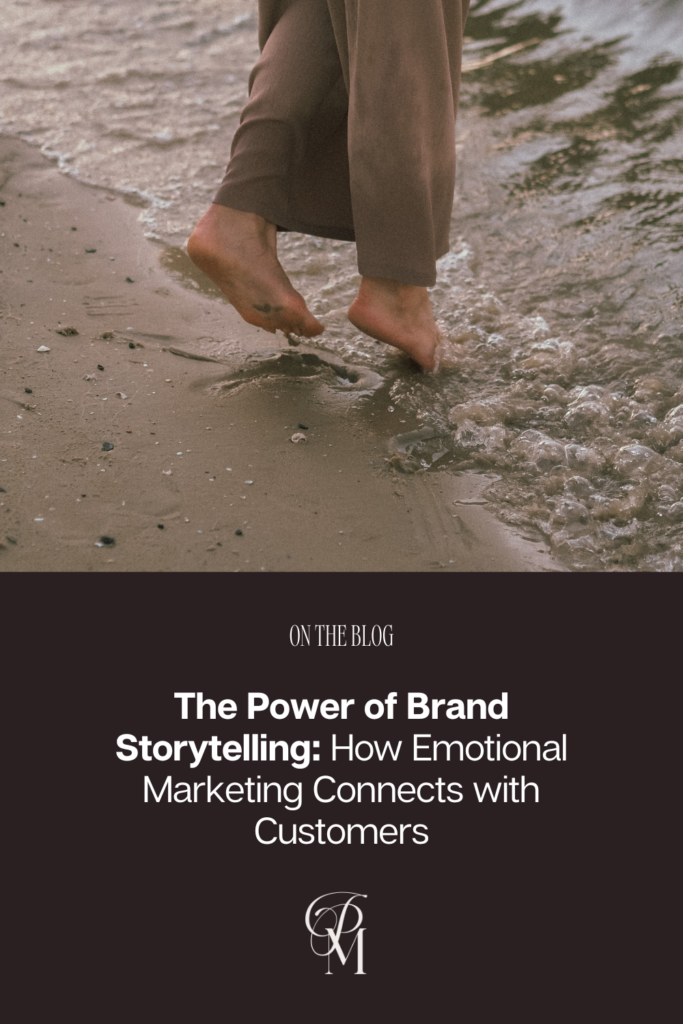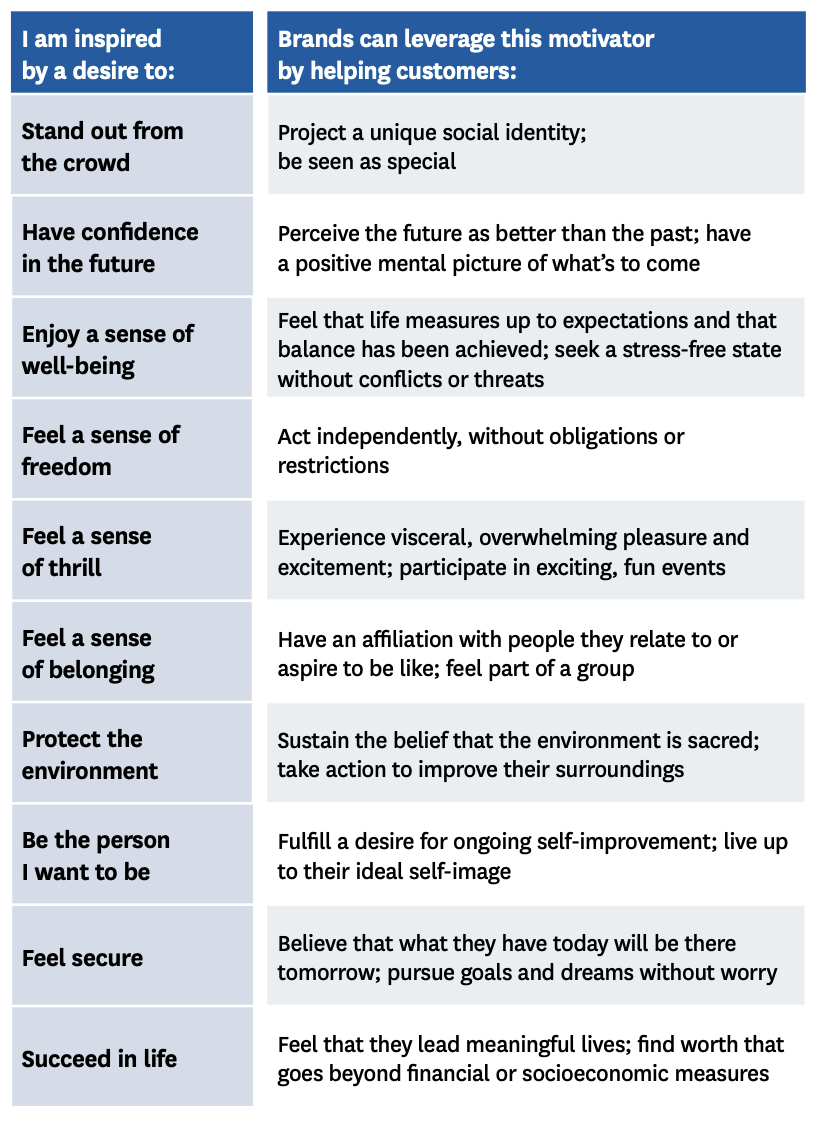As consumers, we’re constantly bombarded with messages from brands each day. In fact, the average American is exposed to around 4,000-10,000 ads per day. Pretty wild, right?! So as a small business owner who’s trying to stand out amongst the chaos of mainstream advertising, what do you do? The answer lies in the power of brand storytelling and emotional marketing.
By telling a compelling brand story and using emotional marketing to connect with customers, you can create a memorable brand experience that differentiates your brand from its competitors.
With that in mind, let’s get into the importance of brand storytelling, emotional marketing, and how combining these strategies can help you connect with customers on a deeper level to build a strong brand.
Understanding Brand Storytelling
Brand storytelling is the use of narratives to convey a brand’s values, beliefs, and purpose to its customers. The most impactful brand stories are those that can evoke empathy, engage an audience, and encourage them to take actions that are mutually beneficial for both the customer and the brand.
Through brand storytelling, businesses can create an emotional connection with their target audience, helping their customers relate to the brand and its mission.
Successful brand storytelling often involves using a central character or protagonist to represent the brand’s values or mission. This can be a real person or a fictional character, but the key is to make the character relatable to your target audience.
For example, Nike’s “Just Do It” campaign features well-known athletes as the central characters, representing the brand’s values of athleticism and determination.
But as a small business owner, chances are you’re going to be leaning into your brand’s origin story or your founder’s story (which in my opinion is much more powerful anyway).
How To Create A Compelling Origin Story:
- Start with Your Why – Your origin story should begin with the reason why you started your business in the first place. What problem were you trying to solve? What inspired you to take the leap and start your own business? This is the foundation of your origin story, so make sure it’s clear and compelling.
- Highlight Your Journey – Once you’ve established your why, it’s time to tell the story of how you got to where you are today. What challenges did you face along the way? What successes did you achieve? Your journey is what makes your origin story unique, so be sure to highlight the moments that shaped your business.
- Emphasize Your Values – Your origin story should also showcase the values that drive your business. What principles do you stand for? What do you believe in? Your values help establish your brand’s identity and differentiate you from your competitors.
- Keep It Authentic – As with all brand storytelling, authenticity is key when it comes to your origin story. Don’t try to create a story that isn’t true to who you are or what your business stands for. Your audience can sense when you’re being disingenuous, so be true to yourself and your values.
Black Rifle Coffee Company & Their Brand Story
One of my favorite brands, Black Rifle Coffee Company relies heavily on brand storytelling to communicate its values and purpose.
Their origin story can be traced back to when their Founder, Evan Hafer (a former U.S. Army Green Beret) was on active deployment during the invasion of Iraq in 2003. He took premium coffee with him so he could still have freshly ground, small-batch coffee every morning. His fellow Special Forces teammates would often wake up to the sound of a coffee grinder that Evan created on the back of their gun truck.
Later in life, when he was stateside, Evan developed an obsession for exploring different types of coffees and espresso, before he began roasting his own batches recreationally.
As a veteran himself, he made it a goal to hire 10,000 veterans once his roasting adventure transitioned from recreational to a full-blown career.
Black Rifle Coffee Company is now not only a Veteran Owned and Operated company but it’s intrinsically motivated to support veterans while providing high-quality coffee to the pro-American and Veteran communities.
He’s created a tribe of men and women who drink the same coffee, appreciate the same type of humor, connects over the same values and belief system, and have essentially all become members of one big BRCC family.
Talk about a business that perfectly leans into its mission, values, and brand story to create waves in the industry!
Anyone can buy a cup of coffee, but as a customer who has beliefs and values similar to those of Black Rifle Coffee Company, once you hear their story, no other coffee can compare.
Trust me when I say a cup of Black Rifle Coffee just hits different in the morning.
Becoming a customer of BRCC is so much more than buying a bag of coffee beans. It’s a way of integrating ourselves into their brand story.
As consumers, we want to become and identify as something bigger – in this case, become a part of the Black Rifle Coffee Community.
In other words, the emotional connection that’s developed goes far beyond the transactional relationship between the customer and the brand.
This emotional connection is such a key factor in building brand loyalty and can help a brand stand out in a crowded market.

Emotional Marketing and Brand Connection
Speaking of emotional connections, did you know that emotion is what’s truly driving all purchasing decisions (and decision-making in general)? Harvard professor, Gerald Zaltman states that 95% of our purchase decision-making takes place in the subconscious mind.
There’s additional research indicating that in most cases, 20% of the decision to make a purchase is logical and 80% is emotional. So while it’s tempting to talk about facts and features, we have to remember that our customers are not just rational decision-makers, but rather emotional beings who are influenced by their feelings and experiences.
One example of successful emotional marketing is Coca-Cola’s “Share a Coke” campaign, which personalized the brand by printing customers’ names on Coke bottles and encouraging them to share a Coke with a friend or family member. This campaign leveraged the emotions of friendship, sharing, and nostalgia to create a memorable brand experience that resonated with customers.
Another example is the Dove “Real Beauty” campaign, which challenged traditional beauty standards and celebrated diversity showing women of all colors, shapes, and sizes. This emotional marketing campaign not only differentiated the brand from competitors but also created a strong emotional connection with customers who identified with the message of inclusivity and self-acceptance.
Below you’ll find a few “emotional motivators” that drive consumer behavior along with how your brand can leverage these motivators:
Combining Storytelling and Emotional Marketing for Success
Brand storytelling and emotional marketing are two powerful tools that, when combined, can create a potent force for brand success. As we’ve learned, emotional marketing helps to evoke a particular emotional response from customers, while brand storytelling provides the context and meaning for that emotion. Together, they create a cohesive brand narrative that resonates with customers and makes a brand more relatable and memorable.
By using emotional marketing to enhance their brand’s story, brands can build a deeper emotional connection with customers, differentiate themselves from competitors, increase brand loyalty and customer retention, and ultimately increase revenue.
To effectively implement brand storytelling and emotional marketing, it’s essential to define your brand’s story and messaging before launching emotional marketing campaigns, use emotional marketing to enhance your brand’s story, not overshadow it, be authentic and genuine in your emotional marketing messaging, ensure consistency across all touchpoints and customer interactions, and continuously monitor and adjust your emotional marketing messaging to align with customer feedback and evolving brand values.
How To Incorporate Brand Storytelling and Emotional Marketing Into Your Small Business
- Define your brand’s story and message: Start by defining your brand’s story, values, and mission. Develop a clear message that resonates with your audience and showcases the unique qualities that set your brand apart.
- Identify your target audience: Identify your ideal customer and understand their needs, wants, and pain points. Use this information to create a message that speaks directly to their emotions and desires.
- Use storytelling to connect with your audience: Incorporate storytelling into your marketing strategy by sharing personal stories, anecdotes, and experiences that align with your brand’s message. This can help create an emotional connection with your audience.
- Use visual storytelling: Use images, videos, and other visual elements to create an immersive and engaging experience for your audience. This can help bring your brand’s story to life and make it more relatable.
- Use social media to amplify your message: Social media is a powerful tool for sharing your brand’s story and connecting with your audience. Use social media platforms to share your brand’s message, engage with your audience, and build a community around your brand.
And remember, as with any effective marketing strategy – emotional marketing and brand storytelling require a deep understanding of your audience and a commitment to authenticity.
By following these steps and focusing on creating a genuine emotional connection with your audience, you can build a strong brand that resonates with your customers and drives long-term success.
Want Support Optimizing Your Brand Messaging?
If you’re feeling overwhelmed by the idea of crafting your own brand messaging, the Pané Marketing team is here to lend a helping hand. With our Strategy Session, you’ll have access to one hour of dedicated support where you can ask any and all questions.
Together, we’ll work to optimize your brand messaging and develop a tailored brand strategy that will not only attract your ideal audience but also nurture your existing leads. By implementing this strategy, you’ll position yourself as an industry expert. Click here to learn more about how the Pané Marketing team can assist you.
Looking for more free content marketing and brand strategy insights?
Subscribe to the Content Pour-Over! It’s where I share my best actionable content marketing insights that will help you show up and show off your impactful brand. Expect a fresh brew to splash your inbox every Wednesday morning. ☕


